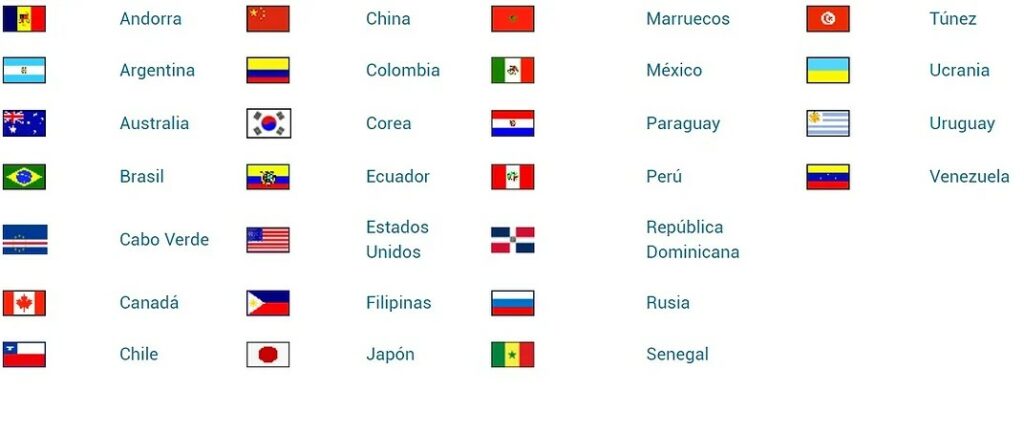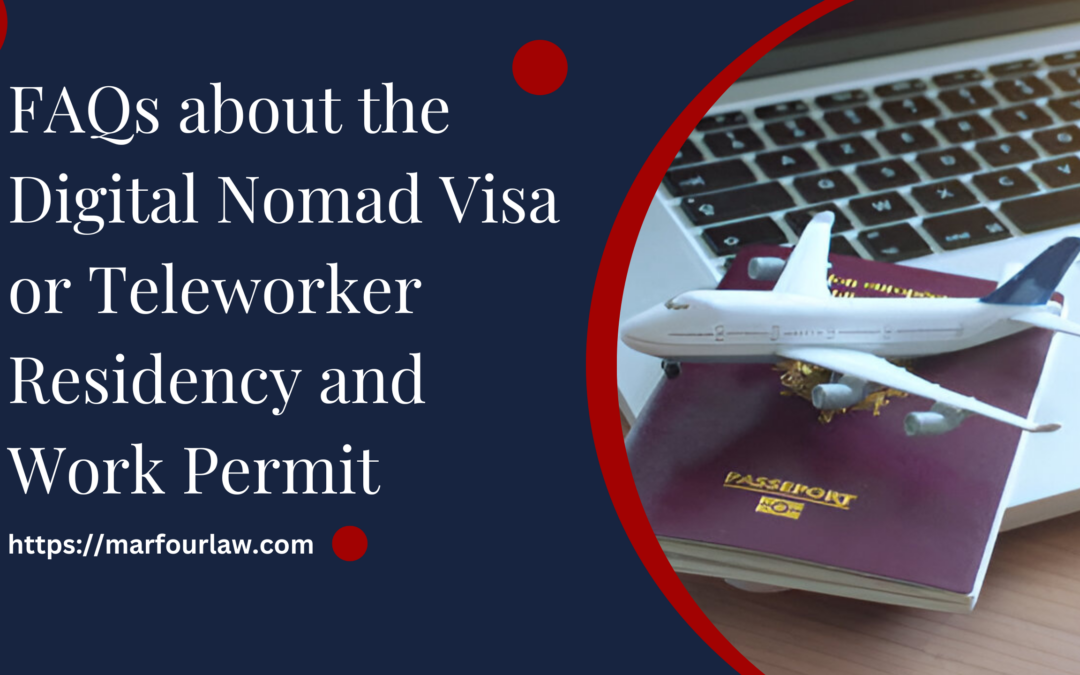FAQs about the Digital Nomad Visa: FAQs provide quick, straightforward answers to common questions, making it easier to understand complex topics. They’re a great resource for finding key information quickly and efficiently.
What is the purpose of the international teleworker authorization in Spain?
This authorization, approved on December 22nd, 2022, allows nationals of third countries to travel to Spain to perform professional activities remotely for companies located outside of Spain, using computer and telecommunication systems exclusively.
Who is eligible to apply for the international teleworker authorization in Spain?
The authorization is available to nationals of third countries who are of legal age. This does not apply to EU citizens or individuals to whom European Union law applies.
Can freelancers apply for the international teleworker authorization?
Yes, freelancers can apply, provided they can prove a professional relationship with a foreign company for which they have worked for at least three months. The company must also authorize their transfer to Spain.
What are the essential requirements for obtaining the international teleworker authorization?
Applicants must not be residing irregularly in Spain, must have no criminal record in Spain or any country where they have lived in the past five years, must contract health insurance authorized in Spain, and must have sufficient financial resources for themselves and their family members during their stay.
Are there any restrictions on the type of work that can be performed while holding the international teleworker authorization?
Yes, work must be conducted exclusively through computer, telepathic, and telecommunication means. If employed, you can only work for the foreign company you have the authorization for. If in a professional relationship, you can work for a Spanish company, provided the work with the foreign company does not exceed 20% of your total professional activity.
What is a Digital Nomad Visa?
A Digital Nomad Visa is a special type of visa that allows you to live in a foreign country while working remotely for an employer or clients located elsewhere. This means you can continue your current job or freelance work without being tied to a specific office location. It’s a great option for those who want to explore new places while keeping their job.
Who can apply for a Digital Nomad Visa?
Anyone who works remotely and has a consistent income can apply for this visa. It’s suitable for freelancers, employees of companies based in other countries or people who run their online businesses. As long as your work can be done online and doesn’t require you to be physically present in a specific place, you’re eligible.
What are the income requirements?
To apply for a Digital Nomad Visa, most countries require proof that you have a stable income. This is to ensure that you can support yourself while living there. The specific amount varies by country—some might require you to show that you earn a certain amount each month, while others might ask for proof of savings.
Do I need a job offer from a local company?
No, you don’t need a job offer from a company in the country where you’re applying for the visa. The purpose of the Digital Nomad Visa is to let you work remotely for an employer or clients outside the country. You’re essentially bringing your job with you rather than seeking employment locally.
Can I bring my family with me?
Yes, in most cases, you can bring your immediate family, such as your spouse and children. However, you may need to prove that you can financially support them during your stay. Some countries might have additional requirements or specific procedures for family members, so it’s important to check the details.
How long can I stay with a Digital Nomad Visa?
The length of stay allowed with a Digital Nomad Visa varies by country. Some countries offer visas that are valid for six months, while others might allow you to stay for a year or more. In some cases, the visa can be renewed or extended if you meet the necessary conditions.
Can I apply for permanent residency later?
In some countries, the time you spend on a Digital Nomad Visa might count toward the time required for permanent residency. However, this isn’t guaranteed and varies by country. If you’re considering staying long-term, it’s important to look into the specific residency rules of your chosen destination.
Do I need health insurance?
Yes, most countries require you to have health insurance that covers you during your stay. This is to make sure you’re protected in case you need medical care. You might need to provide proof of insurance as part of your visa application.
What documents do I need to apply?
The exact documents you’ll need can vary by country, but generally, you’ll need to provide proof of income, a valid passport, health insurance, and sometimes a background check. It’s essential to check the specific requirements for the country you’re interested in, as they can differ.
Is there a fee to apply?
Yes, there’s usually an application fee when applying for a Digital Nomad Visa. The amount can vary depending on the country, so it’s a good idea to factor this cost into your budget when planning your move.
Can I travel while on a Digital Nomad Visa?
Yes, you can usually travel in and out of the country where you have your Digital Nomad Visa. However, the specifics can vary—some visas might restrict the amount of time you can spend outside the country without losing your visa status. It’s important to understand the rules before planning your trips.
Can I work for local clients or companies?
Typically, the Digital Nomad Visa is intended for remote work with foreign clients or employers. Working for local businesses might not be allowed under this visa and could require a different type of work permit. It’s important to follow the visa’s guidelines to avoid any legal issues.
Do I need to pay taxes in the country I’m staying in?
Tax obligations can vary widely depending on the country. Some countries might require you to pay taxes locally, while others might offer tax exemptions for digital nomads. It’s a good idea to consult with a tax advisor familiar with both your home country and your destination to ensure you comply with all tax laws.
What happens if my visa expires?
If your visa expires, you’ll need to leave the country or apply for an extension if that’s an option. Overstaying your visa can result in fines, deportation, or being banned from returning, so it’s crucial to keep track of your visa’s expiration date and plan accordingly.
Is there a limit on how many times I can apply?
This depends on the country’s specific rules. Some countries may allow you to renew your Digital Nomad Visa multiple times, while others might limit the number of times you can apply. It’s important to check the regulations of the country you’re interested in.
What if I change jobs while on the visa?
Suppose you change jobs or take on new clients while on a Digital Nomad Visa; you can usually continue to stay in the country as long as you still meet the visa’s original requirements. However, you may need to report any significant changes to the local authorities, depending on the visa’s terms.
How long does the application process take?
The time it takes to process a Digital Nomad Visa application can vary, but it usually ranges from a few weeks to a couple of months. It’s a good idea to apply well before you plan to move to avoid any delays.
Can I rent the property while on a Digital Nomad Visa?
Yes, you can rent a place to live, such as an apartment or house, while on a Digital Nomad Visa. Some countries even have specialized accommodation options for digital nomads, like co-living spaces that cater to remote workers.
Are there any networking opportunities?
Yes, many countries with Digital Nomad Visas have established communities of remote workers. These can be great opportunities to meet new people, share experiences, and find co-working spaces. Some places even host events specifically for digital nomads.
What should I consider before applying?
Before applying for a Digital Nomad Visa, think about factors like the cost of living in your destination, the local culture, the availability of reliable internet, and any potential language barriers. It’s also important to understand the visa’s terms and conditions to make sure it’s the right fit for your lifestyle and work needs.


